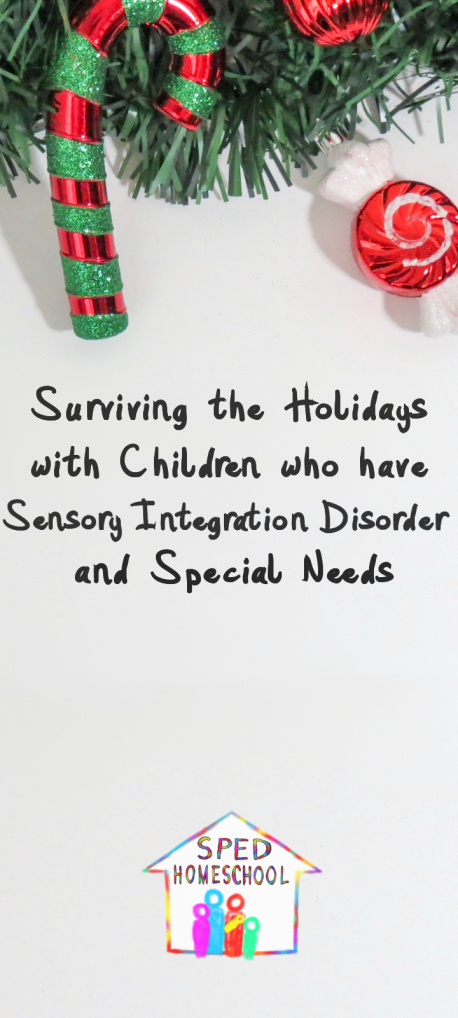By Dyana Robbins
Our home is filled with boundless energy, lots of love and enough challenges to fill two lifetimes. God has wisely chosen to pack it all into my life and teach me how to walk with Him through it. And, because we homeschool, many of those lessons have centered around homeschooling special needs children.
Here are ten things I wish I had known before homeschooling children with special needs:
#1 – There are many days that are as hard as I feared they would be, but they are outweighed by the wonderful life we share.
It will always be a difficult choice to homeschool. On days when I wonder if going to school would be better for them or me, I remember all we would lose by not learning and growing together. So far, that has been more than enough to keep us on this path.
#2 – I don’t have to defend my decision to homeschool.
Doing it well, wholeheartedly and openly, eventually silences the critics. Responding with information and kindness to those with questions, fosters a positive response in most people. When that doesn’t work, nothing else will, so I can stop trying.
#3 – Most parents, doctors, and therapists in these trenches are amazing, inspirational people.
They will help you, listen to you, and inspire you with all that they do each day. The admission price to this club is steep, but the rewards are inestimable.
#4 – Nurturing my marriage first is critical to successful homeschooling.
The more unified, mutually supportive and loving that our marriage is, the more our children learn, feel secure and thrive. Time devoted to our marriage is not a detriment to homeschooling, but an investment in it.
#5 – Rest and recreation deserve subject credit.
Are my children battling me over schoolwork? Would I rather scrub the bathroom with a toothbrush than face one more day of school? This is a sign that we need rest and recreation. Many discipline problems and poor attitudes have been vanquished by a nap, field trip day or a day off from school. It is amazing how much is accomplished by taking a quick break, rather than pushing through our misery.
#6 – I won’t have it all together for very long.
This is a bitter pill for a recovering perfectionist like me. Loving my family, putting relationship with Christ and others first, will always mean interruptions and distractions to my schedule. Maintaining a reasonable order to our life is better than appeasing my inner tyrant’s demands.
#7 – It’s vital to show love and accept my children even if they are never able to do _______.
This blank can be filled with whatever we are struggling with at the time. My children need me to be content and grateful for what they are able to do (or unable to do!) so they can learn to do the same. Their struggles and limitations will always tempt them to despair or give up. I add to their burden when I am discontent or frustrated. Seeking God’s design and purpose for my children, Allows me to help them grow and discover those things with joy.
#8 – Ask for help and humbly accept it.
Homeschooling moms can believe they should handle everything alone. This is a fast road to burnout. Utilize all available help to maintain a peaceful home, heart, and family. While others might praise us for being able to “do it all,” that praise is a fleeting satisfaction. A richer life is interconnected; giving and receiving, and helps us make it for the long haul.
#9 – I will always wonder if I am doing “enough.”
This might be the nemesis of every homeschooling parent. Having children with additional challenges and needs often compounds this worry. Rather than trying to answer this unknowable question, I have learned to accept that I am not ever doing “enough.” Moreover, it is not my job to be enough for my children. That job belongs to God alone. I am just one of His provisions in their lives. Others can and will shape my children. Opportunities will arise for them that I did not orchestrate. Relationships will be formed without my intervention. I can do my best for them and trust all else to their loving Father.
#10 – God is enough.
This is true when nothing is going right, I fail, my children aren’t progressing like they “should” and I am scared about the future. No matter our circumstances, He carries us and enables us to do what He calls us to do. He has taught me this in many ways, but I experience it more deeply as we homeschool. This realization has enriched my life and relationships more than any other; it’s been this mom’s greatest lesson.
This article was previously published in abbreviated form for the
Texas Homeschool Coalition
Special Needs blog in January 2016









